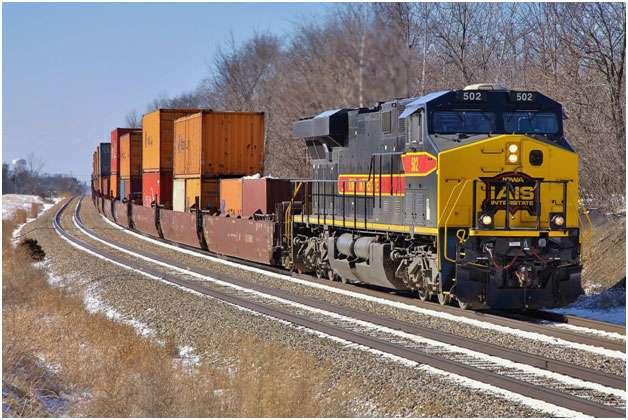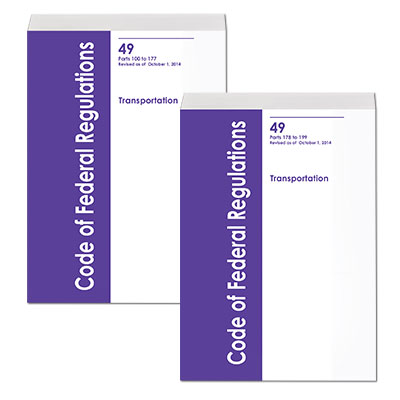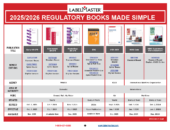
Railroads like Iowa Interstate depend on their legal ability to handle hazmat, whether containerized or bulk. (©2012 Paul Burgess, used w/permission)
The United States Department of Transportation’s (USDOT) Pipeline and Hazardous Materials Safety Administration (PHMSA) today issued a Final Rule pertaining to the ability of individuals and corporations to continue to operate after failing to pay a required penalty assessed under a violation of the US 49 CFR Hazardous Materials Regulations (HMR). In Docket # PHMSA-2012-0258 (HM-258A), PHMSA prohibits such individuals and corporations from continuing to handle hazardous materials under the provisions of the HMR if an assessed penalty has not been paid in the time allowed after such penalty has been levied—generally, within ninety days.
It is important to note however that PHMSA draws a clear distinction between the “violation phase” and the “penalty phase.” Briefly, in the “violation phase” (author’s term) PHMSA and the respondent are in the process of adjudication as to whether or not the violation alleged is to be made final and a citation and penalty actually assessed. In the “penalty phase” (again, author’s term) then an actual formal order has been issued to the respondent levying a fine against them for the violation which has been finalized. It is a process similar (albeit on a somewhat grander scale) to receiving a traffic ticket—one is not responsible for paying the fine until one either pleads or is found guilty of the violation alleged in court.
Unsure if you ship hazmat? Check out our informative guide concerning shipping limited quantities!
PHMSA further specifically addresses the issue of bankrupt entities, noting that it is the intent of the law to impose reasonable restrictions on corporations operating under Chapter 11 such that they cannot view their protections under that law as excluding them from having to pay any assessed fine. Under that circumstance, it appears that PHMSA will seek guidance from the Bankruptcy Court under which the Chapter 11 case is being handled to determine whether or not the violator is required to pay.
Need DOT regulatory publications? Shop our selection of 49 CFR’s today!
PHMSA also notes that this law is not retroactive and cannot be used to apply these sanctions to entities whose penalty assessment predates the effective date of the regulation—September 8th, 2014.
An interesting side note is present in the comments section of the Federal Register notice announcing the regulation. In this case, the Association of American Railroads (AAR), an entity which primarily represents the interest of the larger Class One railroads, and the American Short Line and Regional Railroad Association (ASLRRA), primarily representing smaller and local railroads, commented in what could be termed as opposition to the new regulation, asserting that “…PHMSA exceeds the scope of the MAP-21 mandate (i.e. to enforce compliance with the HMR) by constraining the right of the respondent to both judicial and administrative review of a Cessation of Operations Order. (COO)” In answer PHMSA asserts that this is not the case and that such a COO would only be issued following the exhaustion of the appeals process accompanied by a failure to pay as ordered. The concern of these two industry groups may reflect the heightened interest in hazardous materials operations by rail and the resultant potential liability thereof following the deadly summer 2013 derailment and hazardous materials accident in Lac Megantic, Quebec. The NPRM preceding the Final Rule was issued not long after that incident and has generated numerous emergency orders from both the Canadian and US governments regarding the safe shipment of hazardous materials by rail.
Here is a link to the final rule:
http://www.gpo.gov/fdsys/pkg/FR-2014-08-07/pdf/2014-18617.pdf
Labelmaster is a full service provider of goods and services for the Hazardous Materials and Dangerous Goods professional, shippers, transport operators, and EH&S providers. See our full line of solutions at www.labelmaster.com.



